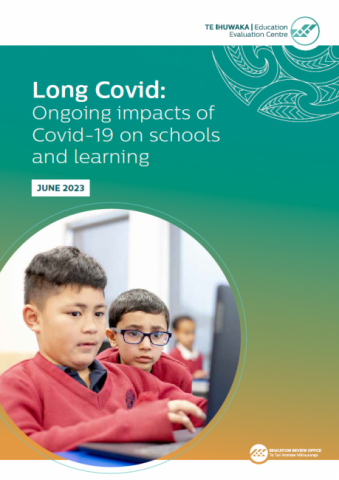ERO’s latest research into the ongoing impacts of Covid-19 has found that the pandemic has had a lasting and significant impact on education in New Zealand – particularly on learners’ progress.
Although learners are happier and feel more connected to friends, principals and teachers are increasingly concerned about their attendance, behaviour and learning.
Nearly half of principals said that learning is worse than they would expect at this time of year, with many highlighting writing as the biggest area of concern. NCEA attainment has also fallen, with NCEA Level 2 achievement rates below where they were before the pandemic.
We are concerned that inequities have increased, with learners in poorer communities being more impacted. Principals from schools serving poorer communities are reporting learners have fallen further behind.
Covid-19 has had a serious impact on attendance, and challenging behaviour remains a significant issue, with four in 10 principals saying that learner behaviour is worse than they would expect.
Looking at these findings we know that learners need more support – however we also know that teachers and principals are struggling. This combination of issues is particularly concerning.
The pandemic continues to impact schools. Only one in five principals think their schools have recovered from the disruptions caused by Covid-19.
We also found that principals in small schools and those in poorer communities are finding it tougher. Principals in poorer communities are nearly twice as likely to say their school has not recovered from Covid-19 disruptions.
After three years of the pandemic, education in New Zealand has “long covid”. The ongoing impacts on learners, teachers, and principals are not easy to bounce back from.
ERO is recommending we make up for lost learning opportunities for all by increasing school attendance and time on learning. We also need to help learners catch up by better understanding where learning gaps are and by prioritising skills like reading, writing and numeracy. Finally, we need to target support for those schools who need it the most and support educators to respond to the ongoing challenges.
